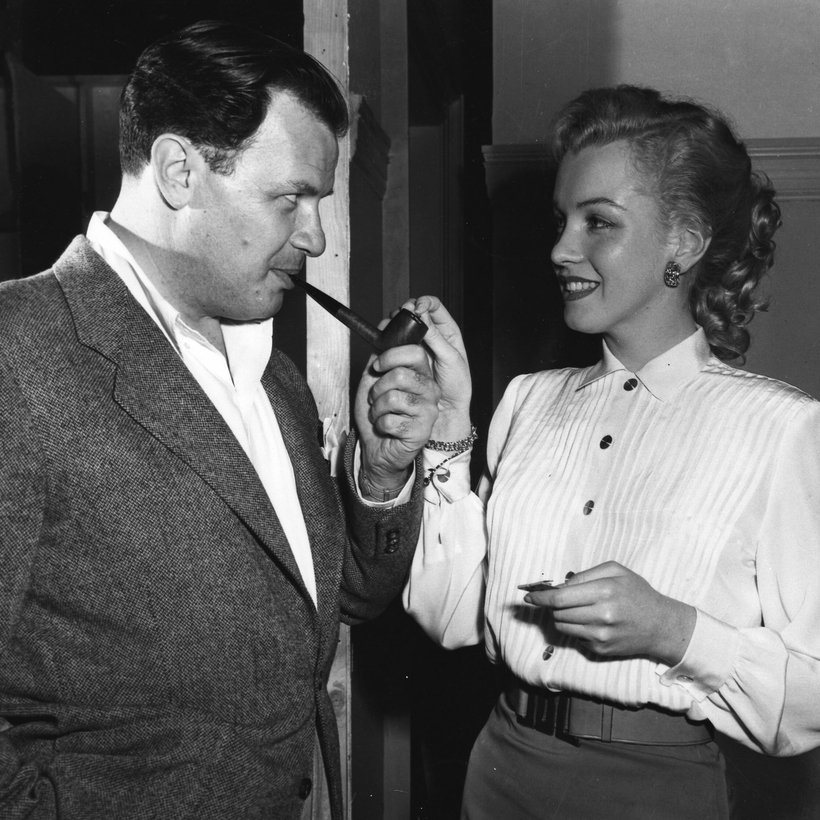I was a female biographer writing in the #MeToo era about a pair of powerful Hollywood brothers. No, not those brothers. Mine were Herman Mankiewicz (1897–1953), best known for co-writing Orson Welles’s Citizen Kane (1941), and Joseph L. Mankiewicz (1909–93), who wrote and directed, among others, All About Eve (1950) and Cleopatra (1963). I didn’t need Harvey Weinstein horror stories to know I needed to dig deeply into the Mankiewiczes’ relationships with women, but at the same time I dreaded discovering that either was actually a predatory monster. Monsters may make good copy, but I didn’t want to write an entire book about a subject I despised.
Herman had one wife, and before becoming a Hollywood screenwriter he was an Algonquin habitué, newspaperman, playwright, and The New Yorker’s first theater critic. With Herman, I wasn’t particularly worried about unexpected revelations—between gambling away his prodigious studio earnings, getting himself fired from every studio in town, and drinking himself to death at 55, I suspected he had little time, and less energy, to harass women. Besides, he not only loved his wife—he feared her.
Man of Affairs
Joe was another story. In addition to three wives, one of whom committed suicide, he was a serial philanderer, usually with stars like Joan Crawford and Judy Garland. He routinely had affairs with leading ladies in the films he directed, some of them lasting years (Linda Darnell), and some merely flings, like with Jean Simmons and Gene Tierney (who dumped him after meeting a young John F. Kennedy). The handsome, pipe-smoking writer-director loved playing amateur psychiatrist, drawing out women’s secrets and giving them advice.
I didn’t need Weinstein horror stories to know I needed to dig deeply into the Mankiewiczes’ relationships with women.
Although he was in a position of authority, and many of the actresses in his orbit were young and impressionable, I soon found it obvious that Joe was not running a casting couch. Several of the women considered him the love of their lives, and he clearly relished the seduction, the intrigue, the romance, and the intensity of the relationships. If he gloried in the adulation, Joe also wanted to learn. He found women fascinating and far more interesting than men, often joking that if he had written All About Adam instead of All About Eve, it would have been a very short picture.

Furthermore, Joe channeled his insights into his directing and writing. Anne Baxter, who remained a lifelong friend after Joe directed her as Eve Harrington in All About Eve, said, “Joe knows more about women than any man I’ve met. We’re all just made of glass—he knows what makes us tick and it makes him a superb director because he knows what is deep in us.” He populated his screenplays with feisty, ambitious, confident women who wanted more from life than society dictated. And even as he made his own wife miserable, he recognized the vulnerability of the stay-at-home wife and depicted it sympathetically in All About Eve. Karen Richards (Celeste Holm) watches helplessly as Eve seduces her playwright-husband so he will write great plays for her. As Joe put it, the successful husband leaves every day for “a fun fair where he’s the brass ring on the merry-go-round…. He’s fair game every minute he’s away from home.”
So there it was. Joe was a reprehensible husband. He was a serial seducer. But he was much too empathic to be a monster. What a relief.
Sydney Stern’s The Brothers Mankiewicz: Hope, Heartbreak, and Hollywood Classics is out now from University Press of Mississippi

